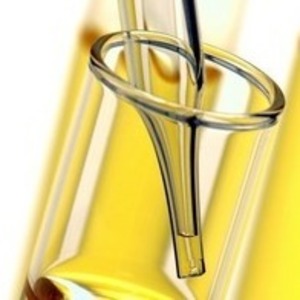AGQM's 10th No-harm Test Round on oxidation stabilizers underway

December 29, 2015
BY AGQM
The German biodiesel quality management association AGQM started its 10th round robin test for oxidation stabilizers for biodiesel and, for the first time, also for bio heating oil. As experiences from the past show no-harm testing is essential for safe additization.
Today petroleum based diesel fuel is blended with up to 7 percent biodiesel on the basis of EN 590, the European Standard for diesel. Oxidation stabilizers for the biodiesel component are strongly recommended, which is why producers of commercial biodiesel already admix antioxidants in almost all cases. Possible negative interaction of the additives with diesel fuel and its additives are ruled out by AGQM’s sophisticated no-harm tests.
This year for the first time AGQM offers a test program for oxidation stabilizers for biodiesel intended for the use in heating oil, as a reaction to the increasing demand for bio heating oil. For this application also safe handling and compatibility of the additives must be guaranteed at all times.
Advertisement
After nine test runs with 64 additives—44 tested successfully—it is obvious that no-harm testing is essential for safe additization. The no-harm list with all certified oxidation stabilizers for biodiesel is published on AGQM’s homepage.
Advertisement
Related Stories
Clean Fuels Alliance America on June 10 announced the launch of the newly redesigned BQ-9000 website, delivering a streamlined and user-friendly experience that better showcases the value of biodiesel quality assurance.
Global Biofuels Alliance launches at G20 Summit
President Joe Biden on Sept. 9 joined leaders of India, Argentina, Brazil, Italy, Mauritius and the United Arab Emirates to launch the Global Biofuels Alliance. The launch took place on the sidelines of the G20 Summit in New Delhi.
Neste is disputing a report filed with the USDA that suggests the company may have received fraudulent used cooking oil (UCO) volumes at its renewable products refinery in Singapore, specifically virgin palm oil from Indonesia.
Members of the European Parliament (MEPs) on Sept. 13 approved a new law that ramps up requirements for sustainable aviation fuel (SAF) within the European Union but sets limits on what types of feedstocks that fuel can be made from.
Clean Fuels outlook predicts growing supplies of used cooking oil
Global used cooking oil (UCO) supplies are anticipated to rise from 3.7 billion gallons in 2022 to between 5 billion and 10 billion gallons by 2030, according to a report released by Clean Fuels Alliance America on Sept. 13.
Upcoming Events










